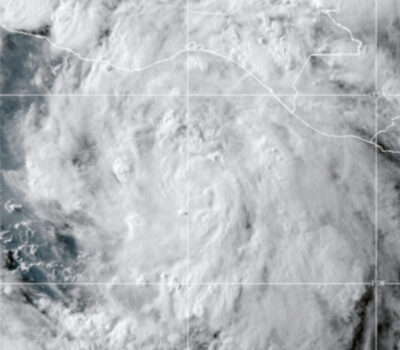
The Government Is Unstable
A common misconception about Mexico is that its government is unstable and unreliable. This perception may stem from historical events or isolated incidents that do not accurately reflect the country’s current political landscape. In reality, Mexico is a federal republic with a stable government structure that has been in place for decades. The nation operates under a democratic framework, characterized by regular elections, a multi-party system, and adherence to constitutional processes.
Federal Republic Framework
Mexico’s government is structured as a federal presidential representative democratic republic. This means that the country is divided into 31 states and one federal entity (Mexico City), each with its own constitution and government, but all united under a federal system. The President of Mexico serves as both the head of state and government, elected for a single six-year term with no possibility of re-election. This structure ensures a balance of power between the federal and state governments, promoting stability and governance tailored to regional needs.
Regular Elections
Mexico has a well-established tradition of holding regular, free, and fair elections. The National Electoral Institute (Instituto Nacional Electoral, INE) is an autonomous public organization responsible for organizing federal elections, ensuring transparency and adherence to democratic principles. Elections are held at federal, state, and municipal levels, allowing citizens to participate actively in the political process.
- Presidential Elections: Occur every six years, with the most recent one held in 2018.
- Legislative Elections: Members of the Congress of the Union, which includes the Senate and the Chamber of Deputies, are elected to represent the populace at the federal level.
- State and Local Elections: Governors, state legislators, and municipal officials are elected according to schedules determined by each state.
The regularity and integrity of these elections reflect Mexico’s commitment to democratic governance and political stability.
Multi-Party System
Mexico operates under a multi-party system, encouraging a diverse political landscape where multiple parties can compete for power. This system promotes representation of various political ideologies and interests, enhancing democratic participation.
Some of the major political parties include:
- National Regeneration Movement (Movimiento Regeneración Nacional, MORENA): A relatively new party that has gained significant support and currently holds the presidency.
- Institutional Revolutionary Party (Partido Revolucionario Institucional, PRI): Historically dominant, governing Mexico for much of the 20th century.
- National Action Party (Partido Acción Nacional, PAN): A center-right party that has also held the presidency in the past.
- Party of the Democratic Revolution (Partido de la Revolución Democrática, PRD): A center-left party advocating for social democracy.
The existence of multiple parties allows for healthy political competition and dialogue, contributing to governmental stability and responsiveness to citizen needs.
Strong Diplomatic Ties Globally
Mexico maintains strong diplomatic relationships with countries around the world. As the 15th largest economy globally, Mexico plays a significant role in international trade, politics, and cultural exchange.
- United States and Canada: Through agreements like the United States-Mexico-Canada Agreement (USMCA), Mexico engages in robust trade and cooperation with its northern neighbors.
- Latin America and the Caribbean: Active participation in regional organizations like the Community of Latin American and Caribbean States (CELAC) strengthens ties within the region.
- European Union and Asia: Free trade agreements with the European Union and countries in Asia expand Mexico’s global economic connections.
Active Participation in International Organizations
Mexico is an active member of numerous international organizations, reflecting its commitment to global cooperation and adherence to international norms.
- United Nations (UN): Mexico is a founding member and has served on the Security Council multiple times.
- World Trade Organization (WTO): Participation underscores Mexico’s engagement in global trade and economic policies.
- Organization for Economic Co-operation and Development (OECD): Membership indicates alignment with policies promoting economic growth and stability.
- G20: As a member of this group of major economies, Mexico contributes to discussions on global financial stability and economic governance.
- World Health Organization (WHO) and UNESCO: Involvement in these organizations highlights Mexico’s commitment to health, education, science, and culture on an international scale.
Mexico’s active role in these organizations demonstrates a stable government capable of contributing to and upholding international agreements and standards.
When considering a move to Mexico, many Americans grapple with preconceived notions that may color their perception of what life in this diverse and . . .












